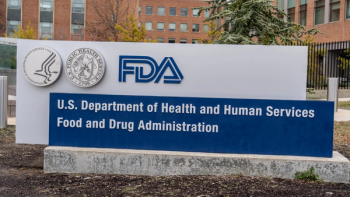
Reducing Medication Errors Through Product Label Changes
Laura Johnson, senior director, sales, life sciences, Loftware, discusses innovations in label design that could lead to improved patient outcomes and less medical errors.
Drug labeling has become a key issue in the pharmaceutical industry. Mislabeling has frequently led to providers prescribing the wrong medications to their patients. In an interview with Pharm Exec, Laura Johnson, senior director, sales, life sciences, Loftware, discussed key challenges of drug labeling, ensuring that labels are easily understood, unclear labeling, and the role of digital passports.
PE: What innovations or changes in label design do you think could improve patient outcomes and reduce medication errors?
Johnson: There's been a lot of innovations, not only from a content standpoint, but as I alluded to earlier, it's more than just the label on the product. It’s all of the background information, the clinical trial information that led to that product being approved for prescriptions and tracking that even once it is approved for prescription to make sure that there's no more effects of it across a broader marketplace. I think that systematically, systems are much more tied together and much more electronic, whereas things years ago were much more manual and harder to track when issues were reported. I think that e-labeling is certainly something that's very interesting, where there can be a barcode or a PDF or a two-dimensional code on the product that the patient or the caregiver can scan, and that takes them to a website that has a lot more information that they can then review.
From our perspective, there’s a lot that can be achieved with e-labeling. There’s a number of ways we can support it with not only with the printing of that that 2D barcode on the product label, but also making sure that the portal or the website behind the scenes is up to date. I think that product information that can be distributed through electronic means, rather than paper or traditional paper labels, can be kept up to date much easier.
Full Interview Summary: The pharmaceutical industry faces significant challenges regarding drug labeling, with mislabeling or misunderstood labeling potentially leading to serious consequences, such as injuries or hospitalizations. One key issue is patient comprehension, especially for those with low health literacy. Many patients may not fully understand the purpose of their prescriptions, potential interactions, or adverse effects, especially when dealing with multiple medications. This highlights the importance of clear, comprehensive labeling that goes beyond the physical bottle to include all necessary prescribing information, warnings, and adverse effect details. However, this information is often overlooked, leading to gaps in patient understanding and safety. A major challenge arises from the disconnect between manufacturer labeling and what patients receive at pharmacies, particularly when medications are repackaged. Inconsistent transfer of important information, such as expiration dates or allergens, can cause confusion and even lead to medications being discarded, as happened with certain COVID-19 vaccines during the pandemic. Innovations in labeling, such as electronic labeling (e-labeling), present opportunities to improve patient outcomes. With technologies like barcodes or QR codes, patients and caregivers can access detailed information online, which ensures the most up-to-date data is available. Additionally, digital passports are seen as a promising tool for tracking a drug's lifecycle, ensuring compliance, and preventing counterfeit medications. While the implementation of such digital solutions is still evolving, their potential to enhance traceability and safety in drug administration is substantial, particularly in regulatory compliance and security.
Newsletter
Lead with insight with the Pharmaceutical Executive newsletter, featuring strategic analysis, leadership trends, and market intelligence for biopharma decision-makers.



